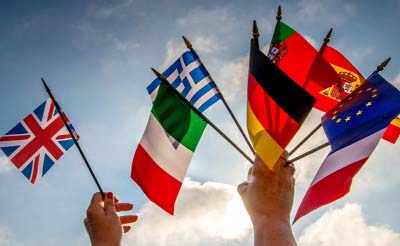
AFP, Washington :The International Monetary Fund said on Thursday that Britain’s shock vote to leave the European Union a week ago has created uncertainty that poses a major threat to the global economy.”We see the uncertainty right now as probably the biggest risk to the global economy,” said IMF spokesman Gerry Rice, calling on European leaders and other policymakers to take “decisive” actions that could lower the threat. The European Union and Britain face negotiations on the Brexit that are expected to be difficult and protracted.European Union leaders say that until Britain formally begins exit proceedings, no talks can begin — formally or informally — on resetting Britain’s ties with the EU, a process meant to last two years.British Prime Minister David Cameron, who resigned after the June 23 Brexit vote, has resisted pressure to immediately activate the Article 50 mechanism to leave the EU, saying he is leaving it to his successor, who will not be named until September 9.”Brexit has created significant uncertainty and we believe this is likely to dampen growth in the near term, particularly in the UK but with repercussions also for Europe and for the world economy,” said Rice in a regularly scheduled IMF news conference.”We need to be ready, all of us policymakers, with decisive actions that can help mitigate that as much as possible.”Meanwhile, EU institutions especially the European Commission share some blame for Britain’s vote to leave the bloc and should forget about any urgent push for deeper integration, Czech Foreign Minister Lubomir Zaoralek said on Thursday.The top Czech diplomat wrote in the Financial Times that Britain’s exit negotiations and EU reforms must be approached with humility and that acting too quickly would be dangerous.He said it would be dishonest to pin all the blame for the British vote on the country’s politicians and voters, calling the Brexit “a symptom of a wider crisis of trust and the collapse of the EU’s political capital.””The (EU) bodies that are meant to instil a sense of common purpose have become symbols of alienation,” Zaoralek wrote in a FT commentary that his ministry posted on its website. “Instead of protecting the unity of the EU, they have contributed to national division and public mistrust, especially in their response to the refugee crisis.”The Commission has irked the central and eastern EU states with efforts to impose fixed quotas on taking in some of the 1.3 million refugees and migrants who reached Europe last year. The central European countries of Poland, Slovakia, Hungary and the Czech Republic called this week for more powers to be repatriated from Brussels to EU capitals and for a reduction in the role of the Commission, with many politicians critical of its integrationist chief, Jean-Claude Juncker.On Thursday, Slovak Prime Minister Robert Fico said states like his that joined the bloc after 2004 need to have more involvement in the EU’s future as this could not be decided by just two or three powerful Western members.Zaoralek said he was “truly baffled” by proposals for further EU integration in the wake of the British vote. “The only thing more dangerous than a federalist push would be moves by member states to reclaim national sovereignty,” he wrote.Zaoralek called evolution toward a more diversified EU a fact of life. He said his country wanted to be a core part of it if the process remains inclusive and added that EU institutions should have a leading role in the process.

